Mushrooms are often added as an exotic ingredient or flavor enhancer in certain delicacies. However, there are debates among vegans and non-vegans alike as to whether mushrooms are considered vegan.
Mushrooms are generally considered vegan. However, different vegan groups have differing opinions on certain types of mushrooms such as farm-cultivated mushrooms, carnivorous mushrooms, wild mushrooms, and truffle mushrooms. These mushrooms are associated with the use of animal products and by-products as well as animal cruelty and exploitation.
This article will discuss the nature of mushrooms along with their similarities and differences from plants and animals. It will also discuss the issues about the vegan status of certain types of mushrooms.
Table of Contents
Properties of Mushrooms
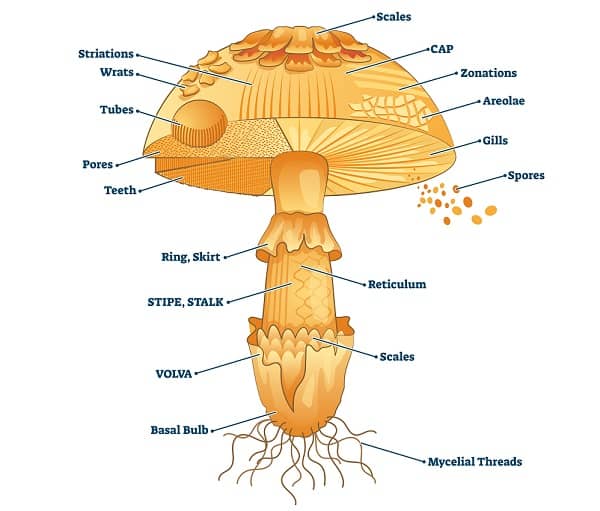
Mushrooms are multi-cellular organisms that are classified under the kingdom Fungi(1). They have a separate classification from plants and animals due to their unique chemical composition; They exhibit a combination of plant and animal characteristics.
Mushrooms are commonly associated with plants due to their similarities in biological properties: Both plants and mushrooms grow on soil, are immobile(some species of fungi "creep"), and have cell walls.
Mushrooms also exhibit similar characteristics to animals. Chitin constitutes the mushroom's cell wall. This is a fibrous substance that is also present in the exoskeleton of several animals like spiders, insects, and arthropods(2).
However, mushrooms are different from plants and animals mainly in how they receive nutrition. Mushrooms do not directly ingest their prey and mushrooms have no chlorophyll that can facilitate photosynthesis.
Mushrooms have a unique way of obtaining food through synthesizing and metabolizing dead or decaying matter. They absorb essential nutrients like sugar, protein, and nitrogen through their tiny filaments called mycelium.
Mushrooms also have a unique method of reproduction. They produce microscopic spores that are dispersed through the slits or tubes of their top caps. These spores are then propagated through wind and animals.
Are Mushrooms Vegan?
Mushrooms are generally considered vegan. While they are not considered to be plants or plant-based foods, they are also not animals because they do not have a defined nervous system. This makes them a vegan-friendly food option.
Most Vegans follow the same sort of definition of what constitutes something as vegan; Abstaining from using all forms of animal products and by-products for food, clothing, or any other purpose.
Travis Harlan
However, certain groups believe that mushrooms are not vegan-friendly food. Mushrooms have many commonalities with animals. They share a common ancestry with animals(3) and exhibit a similar but underdeveloped nervous system.
Mushrooms also feed off decaying organic matter on the ground which can include animal matter. Furthermore, some mushrooms are also products of animal cruelty; Rare mushrooms that grow in the wild are tracked using trained animals.
Problematic Mushrooms for Vegans
Farm-Cultivated Mushrooms
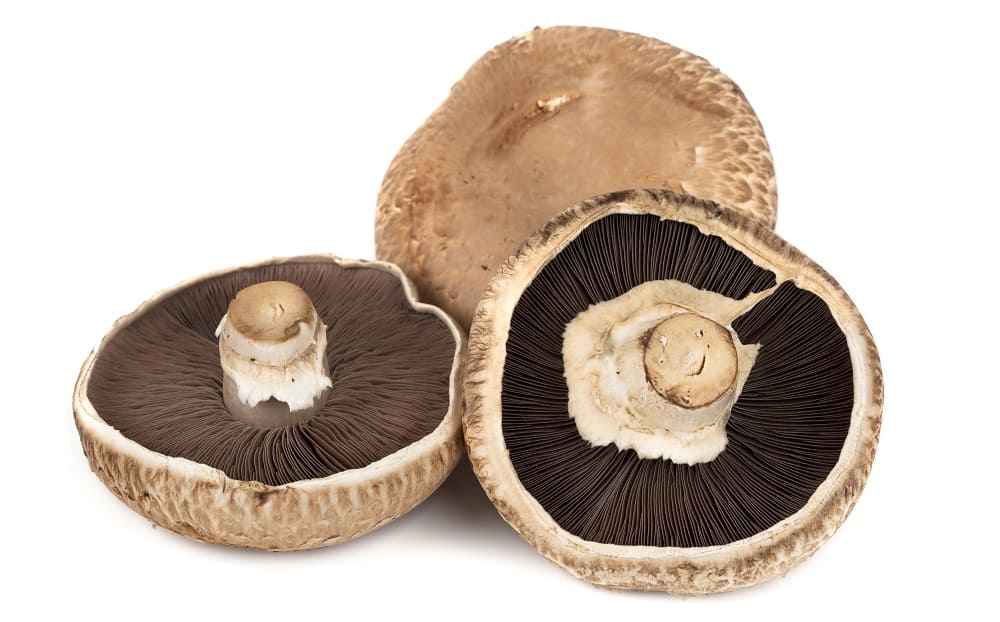
Several varieties of mushrooms such as shitake, portobello, and button mushrooms are cultivated on farms. They are grown in a controlled environment to avoid insects and other pests that usually thrive in mushrooms that grow in the wild.
These mushrooms are cultivated because they are fast-yielding. They are also commonly used as ingredients in various vegan dishes since they are cholesterol-free and are one of the few non-animal sources of vitamin D and vitamin B. They are also good sources of protein and fiber. Moreover, mushrooms are a good alternative to meat due to their umami flavor and meat-like texture.
However, some farm-grown mushrooms are cultivated using animal-derived products. Commercial mushroom growers combine manure, gelatin, or animal bones with soil to create nutrient-dense compost and fertilizers for their mushrooms. The purpose of these animal products is to boost their yield.
This obviously creates an issue with vegans as they do not consume goods that are produced using animal products or by-products.
Carnivorous Mushrooms
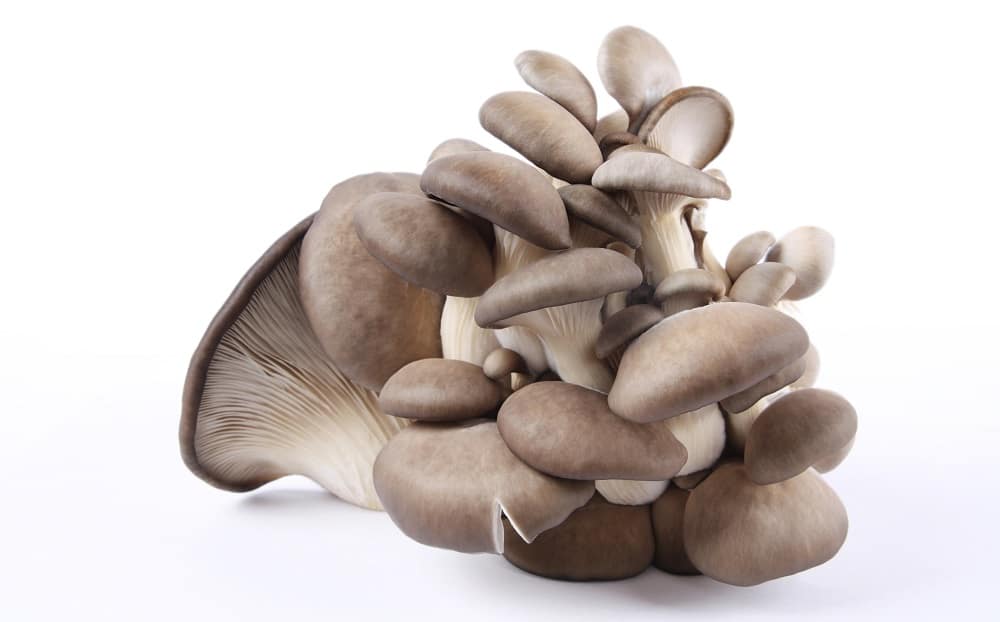
There are over 200 mushroom species that consume both live and dead animals to obtain nitrogen. For instance, oyster mushrooms can trap and kill worms (nematodes) and other small multi-celled organisms that belong to the kingdom Animalia. Other carnivorous mushrooms consume insects and bugs.
Some vegans do not consider carnivorous mushrooms as vegan-friendly since they cause harm to animals. These vegans prefer farmed mushrooms that are grown in controlled substrates without animal matter.
Despite the carnivorous nature of some mushrooms, some vegans still consider them to be vegan friendly. They believe that carnivorous mushrooms consume animals through a natural process that is not human-facilitated. In essence, eating carnivorous mushrooms does not translate to animal cruelty since humans do not directly harm the animals that carnivorous mushrooms consume.
Wild Mushrooms
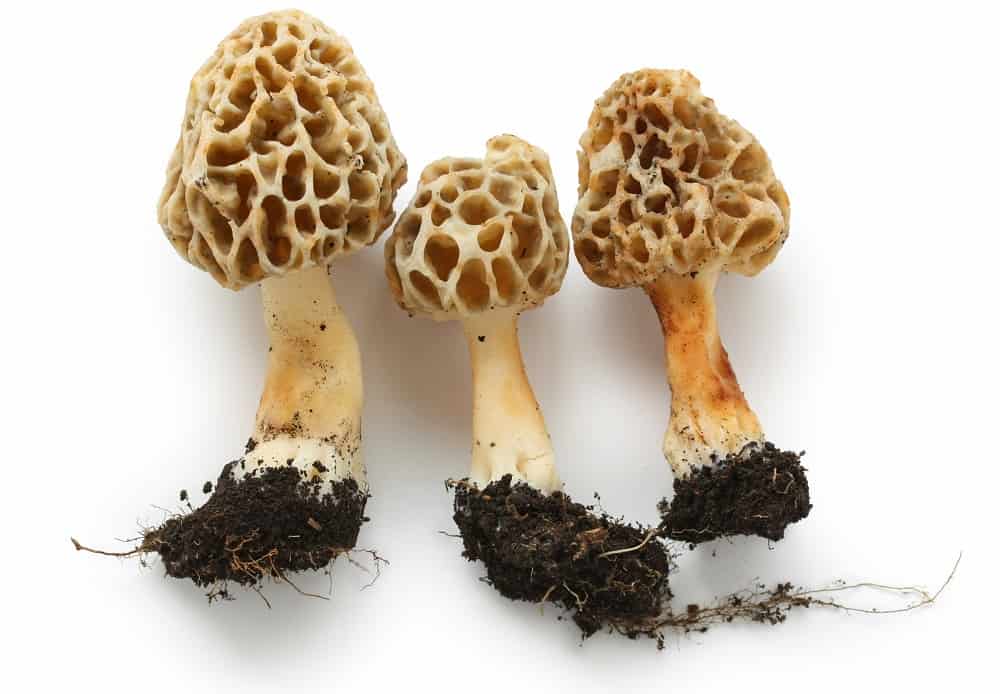
Wild mushrooms grow in natural environments such as forests, mountain slopes, and coastal areas. Chanterelles and morels are the most common types of wild mushrooms. These mushrooms serve as a habitat and food source for several species of bugs and insects.
Some vegans avoid eating wild mushrooms since they claim that it contributes to the decrease of animal habitats and their food source. As such, some vegans believe that humans should only consume farmed mushrooms that are free from insects and bugs.
However, other vegans believe that eating wild mushrooms does not deprive bugs and insects of their habitat and food source since these animals can also thrive on plants.
Truffle Mushrooms
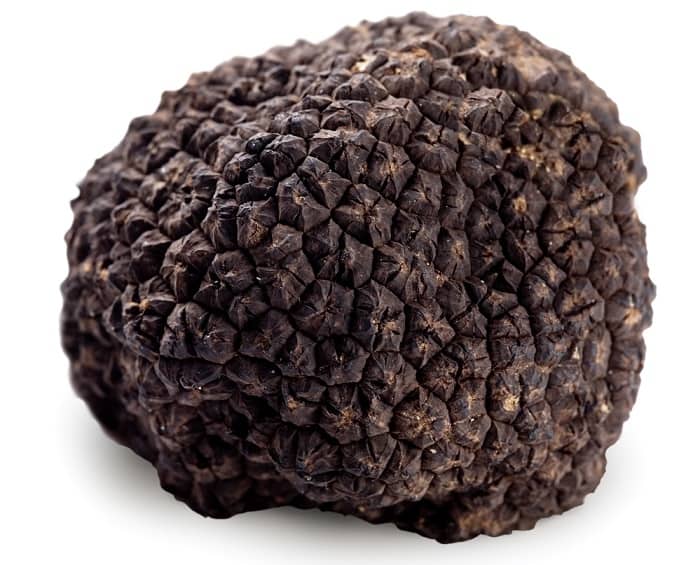
Truffle mushrooms are a type of mushroom that grows underground and near tree roots. They are one of the most expensive types of mushrooms as they are hard to find and difficult to grow. They are common ingredients for luxurious delicacies and in the production of truffle oil.
Truffles produce a type of endocannabinoid called anandamide. This is a natural chemical that produces an addictive effect similar to cannabis' active compound. This chemical is responsible for producing the truffle's unique musky aroma.
Endocannabinoids are also found in animals. They consist of neurotransmitters that are responsible for memory and pain regulation. They are present throughout the animal's nervous system.
Some vegans argue that the presence of endocannabinoid in truffle mushrooms make them similar to animals. They believe that endocannabinoids indicate that mushrooms have a complex nervous system that allows them to feel pain when they are plucked from the ground. As such, they note that truffle mushrooms are not vegan-friendly as they are against the consumption of organisms that can experience unnecessary pain or suffering.
Other vegans claim that the mere presence of endocannabinoids in truffles does not indicate that they are as complex as animals. They claim that all mushrooms are not capable of feeling pain since they have no central nervous system.
Ethical vegans also take issue with truffles as the industry is associated with animal exploitation. They claim that it is unethical to train dogs(4) and female pigs(5) to track truffles that grow in the wild. However, other vegans believe that truffles are vegan-friendly since animals were only trained and are not abused for the sake of harvesting truffles.
Final Thoughts
It is unclear whether mushrooms are vegan due to their uniqueness from animals and plants. Some vegans believe that mushrooms are substantial components of a vegan diet since they are cheap to produce and have nutritive value.
However, some vegans are reluctant to consume certain types of mushrooms due to their association with animal products and by-products and with animal cruelty and exploitation.
References:
1. https://datascienceplus.com/




